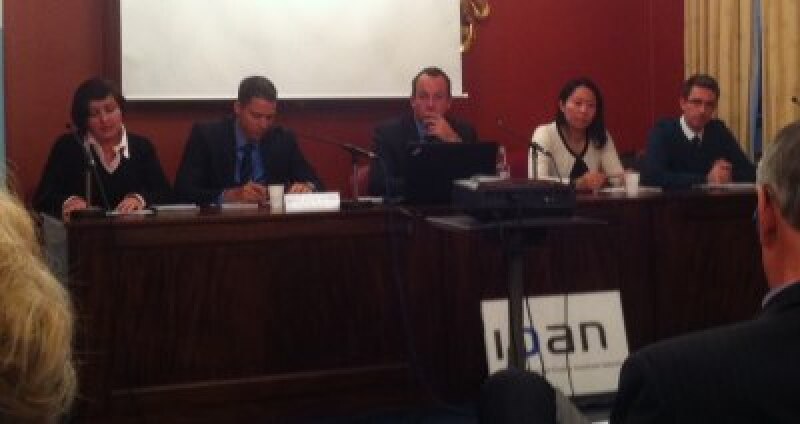
Their two roles are to provide practical support to UK companies, particularly SMEs, entering new markets, and to work with host nation governments on improvements to laws and enforcement. France and the United States have similar networks of representatives.
Speaking at an event hosted by IPAN at CIPA last month (right), the UK attachés noted that they have worked with 233 individual companies, who have IP rights estimated at £377 million ($600 million).
They also spoke about some of the specific issues they have been working on. So what, I wondered is the single biggest challenge for UK rights owners in these markets? Is it counterfeiting? Copyright piracy? Problems with patentability? Cybersquatting? Compulsory licensing? The expense and time of litigation? The difficulty of finding local lawyers?
It turns out it’s more mundane. About 40% of the issues the attaches work on concern trade marks. And based on their presentations and from speaking to them afterwards, it seems like the single biggest headache is bad faith applications. As the UK attaché in Beijing Tom Duke said, one of the main unanswered questions about the revisions to China’s Trade Mark Law is: “How will they deal with the systemic problem of bad faith applications?”

Some of these experiences might be unique to British institutions – both Buckingham Palace and the Royal Mint have had to take action in India – but others are typical for owners of well-known brands. One example given (also from India) was the Wait Rose supermarket set up in Chennai - the two words separated by a picture of a rose (see photo).
In some ways it seems ridiculous that more than 130 years after the Paris Convention was signed, and despite the popularity of systems such as the Madrid Protocol, trade mark owners are bedevilled by chancers exploiting their hard-earned goodwill to confuse consumers.
On the other hand, perhaps it’s an unavoidable effect of the flattening of the world. Some people might also say trade mark owners only have themselves to blame if they don’t take steps to register their rights promptly.
We’d be interested to know what readers think. Are bad faith applications a nuisance, or something worse? And can anything realistically be done to tackle them?
For more information on the UK IP attachés, read the independent report on their work so far.









